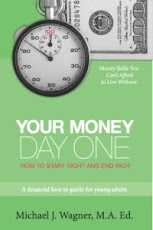It’s called living within your means.
A recent Los Angeles Times Article entitled, “Drop in Debt May Hamper Recovery” [September 9, 2009 by Jim Puzzanghera and Jerry Hirsch] stated that Americans owed $21.6 billion less, yes billion, in July. The $21.6 billion decrease was the largest decrease since the Federal Reserve began keeping records in 1943.
This figure was – get this – over 400% more than ‘analysts’ predicted. I have to ask, “What were the analysts analyzing that they would actually miss their estimate by that much?”
The article makes numerous points about how people are “skittish” about where and what direction the economy is going, and that people do not want to take on further debt. This data is a double edge sword as it relates to returning the United States economic condition to the once vibrant and positive environment to which we had all become accustomed. The fear is that the decreasing debt and increased savings will keep the economy from growing at the rapid pace is enjoyed prior to the recession, yet personal fiscal responsibility will benefit everyone in the long run.
The information, as I interpret it, reveals that people are being conservative; people are scared, and rightfully so. My God, look at what has happened to this country and its economic state over the last year: astronomical unemployment, increased bankruptcies and a foreclosure problem that seems to never go away. Americans have a reason to be concerned.
However, there is another school of thought that I would like to throw out there. Maybe, just maybe, this country is returning to an age old concept called, “Living within your means.” Wow! What a marvel concept that is. Because for so many months and years this country has been out of control with its spending. Why do you think that consumer debt had reached over $960 billion dollars? Because Americans made a conscious decision that if they wanted something, even if they didn’t need it, they were going to do whatever it took to acquire it. Which in most cases meant, charging it or as I like to say, “Borrowing money you don’t have.”
This could not be more evident than with the current housing crisis. People were buying houses that they couldn’t afford with loans they didn’t understand from loan officers who were “Taking while the taking is good.” Then, those same people had to furnish those houses, so they went out and purchased everything they needed with money they didn’t have. Now look where they are. All for what--to pursue the ‘American Dream’? In the famous words of Dr. Phil McGraw, “And how did that work out for ya?”
In a recent Yahoo Finance article, Mortimer Zuckerman said, ““The paycheck has returned as the primary source of spending.” I could not agree with him more.
Isn’t it sad though that a financial crisis the magnitude of the current recession, which is being compared to the great depression, had to come along and severely impact the lives of millions and millions of Americans for us to learn our lesson and finally decide that “keeping up with Joneses” does not lead to the smartest financial decisions.
We can only hope that this crisis will now be the lesson that will be shared with young adults to help them understand the importance of taking personal responsibility for their financial future.



